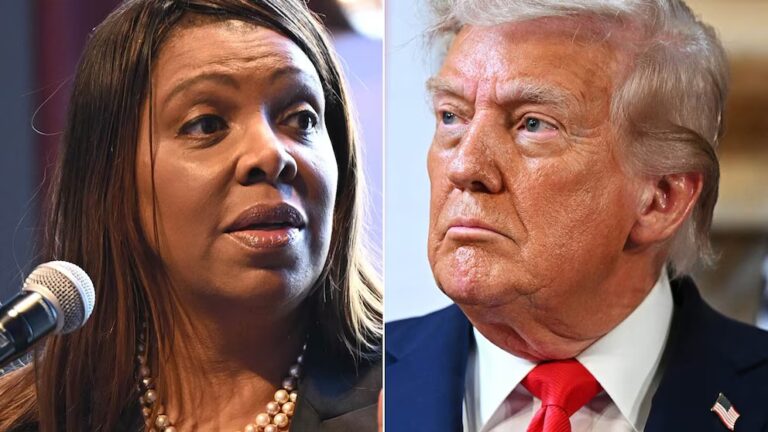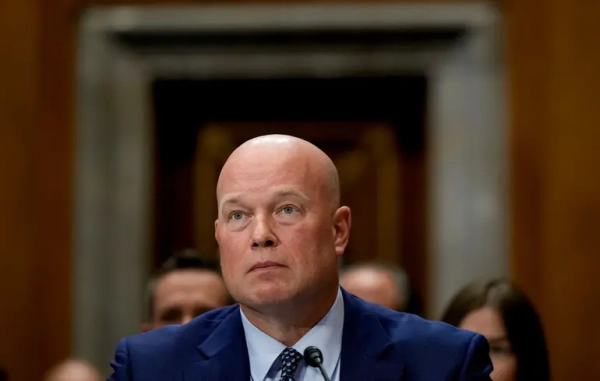
As a general rule, President Donald Trump likes talking about the stock market. Throughout his tenure in the White House, he has tried to set it up as a measure of his success. And during the Covid-19 pandemic, his focus on stocks has become perhaps even more pronounced as he and his advisers point to its quick (and somewhat confounding) recovery as evidence that the US economy is fine.
Heading into the Republican National Convention, I figured the Dow Jones Industrial Average would be a star of the show. And then it just … wasn’t. In fact, mention of one of Trump’s most treasured talking points was pretty sparse.
If someone watched the Republican convention without any background in American politics, this is the version of the GOP they might see: a party that is very racially diverse; really, really into school choice; and a super-ally to small businesses. It’s the party that helped Debbie Flood from Wisconsin lift her business with 3D printing and Tanya Weinreis in Montana keep her coffee business afloat with a loan. “We are not some multinational corporation. Our success isn’t measured by stockholders,” Weinreis said on Monday night.
But that version isn’t one that necessarily jibes with reality. Republicans fought to put in the CARES Act — the coronavirus stimulus bill the president signed into law in March — $500 billion for big industries and corporations to be doled out with very little oversight. And in 2017, they passed a tax cut bill that overwhelmingly benefited corporations and the wealthy. Now, the GOP is pushing to put corporate liability protections in any follow-up pandemic legislation so that businesses aren’t held responsible if their workers or customers get sick.
Those are the types of measures that benefit big companies and help protect the investor class, and the sorts of policies touted throughout Trump’s time in the White House as contributing to pushing the markets upward. To be sure, there’s a lot about the stock market that isn’t attributable to Trump, but that hasn’t stopped him from taking credit for it before. So why not now?
Somewhere along the way, did someone decide it might not be a moment to tout stocks?
Throughout the Republican convention, the stock market barely came up. Trump got at it somewhat, but largely through improvisation.
While speaking after the roll call of delegate vote-casting on Monday, the president spent quite some time talking stocks, as he often does when not on script. “Take a look at what’s happening with the markets. Take a look at your 401(k)s, which you probably do every hour. Take a look at your stocks. We’re very close to breaking the record, and NASDAQ has already done it,” he said.
On Thursday evening during his acceptance speech, the president brought up stocks, but barely. What’s interesting, however, is he strayed from his prepared remarks to spend some extra time on them. Trump was set on warning that a Joe Biden presidency would “totally collapse our rapidly improving economy and once again record stock markets.” When he was speaking, he tacked a little extra on to bring the point home: “That means your 401(k)s. That means all of the stocks that you have.”
Even National Economic Council Director Larry Kudlow, one of Wall Street’s biggest cheerleaders, was light on stock talk when he spoke on Tuesday night. “There’s a housing boom, there’s an auto boom, a manufacturing boom, a consumer spending boom. Stocks are in record territory,” he said.
While many political figures would like to pretend the economy is fine and everything is back to normal, the lack of attention to the stock market feels a bit like an acknowledgment that all is not well for millions of Americans. Talking about a marker that for many people is pretty nebulous and disconnected isn’t helpful and might come off as a bit gauche. Sure, the Dow is over 28,000. The unemployment rate is also above 10 percent.
Still, that hasn’t really stopped the president from talking about the stock market at length before, or many of his advisers. So why shy away this time? Perhaps it has to do with the narrative the convention tried to put forth that was focused on inclusivity and common people. While a small majority of Americans own stocks, the S&P 500 isn’t really a driving force in their everyday lives, and the richest Americans own the lion’s share of the market. Talking about something that feels disconnected from most people’s day-to-day doesn’t really help to underscore the message Republicans were trying to send. And somewhere along the way, they appear to have recognized that.
New goal: 25,000
In the spring, we launched a program asking readers for financial contributions to help keep Vox free for everyone, and last week, we set a goal of reaching 20,000 contributors. Well, you helped us blow past that. Today, we are extending that goal to 25,000. Millions turn to Vox each month to understand an increasingly chaotic world — from what is happening with the USPS to the coronavirus crisis to what is, quite possibly, the most consequential presidential election of our lifetimes. Even when the economy and the news advertising market recovers, your support will be a critical part of sustaining our resource-intensive work — and helping everyone make sense of an increasingly chaotic world. Contribute today from as little as $3.
Sourse: vox.com






